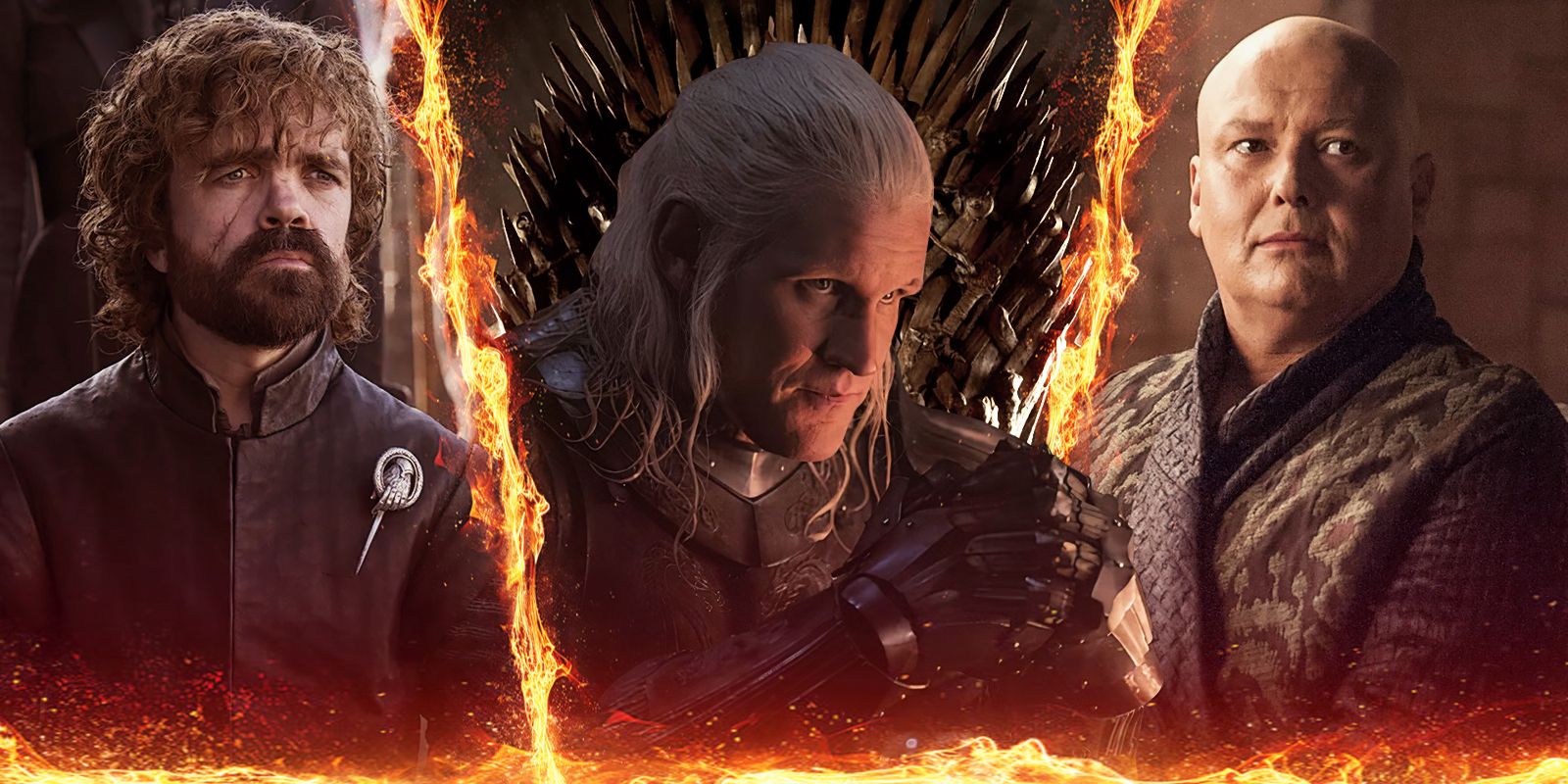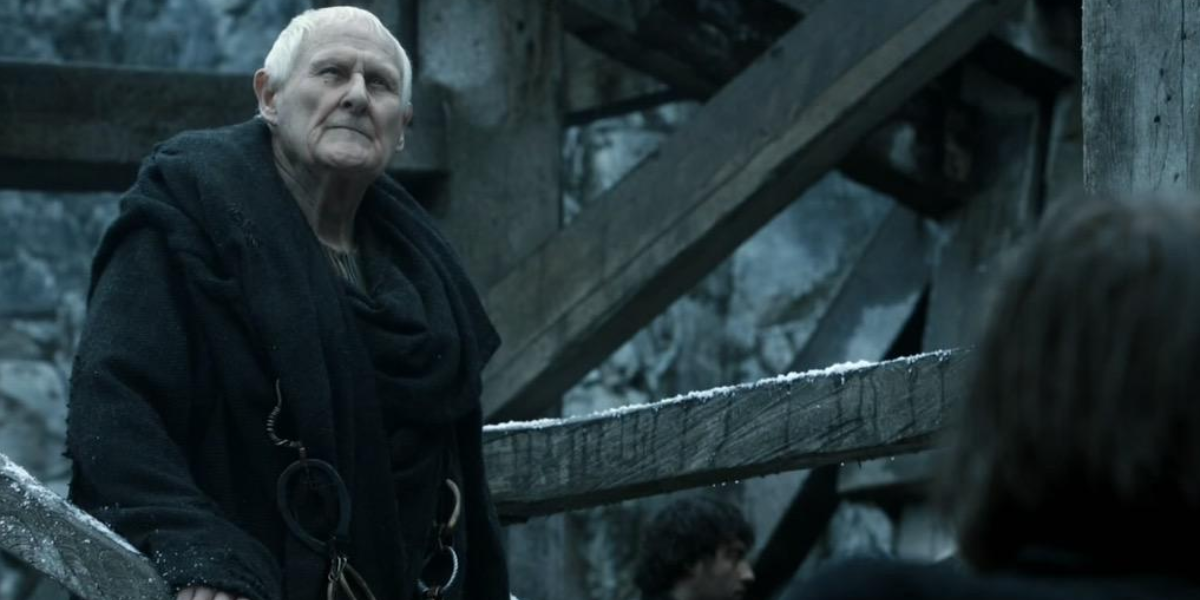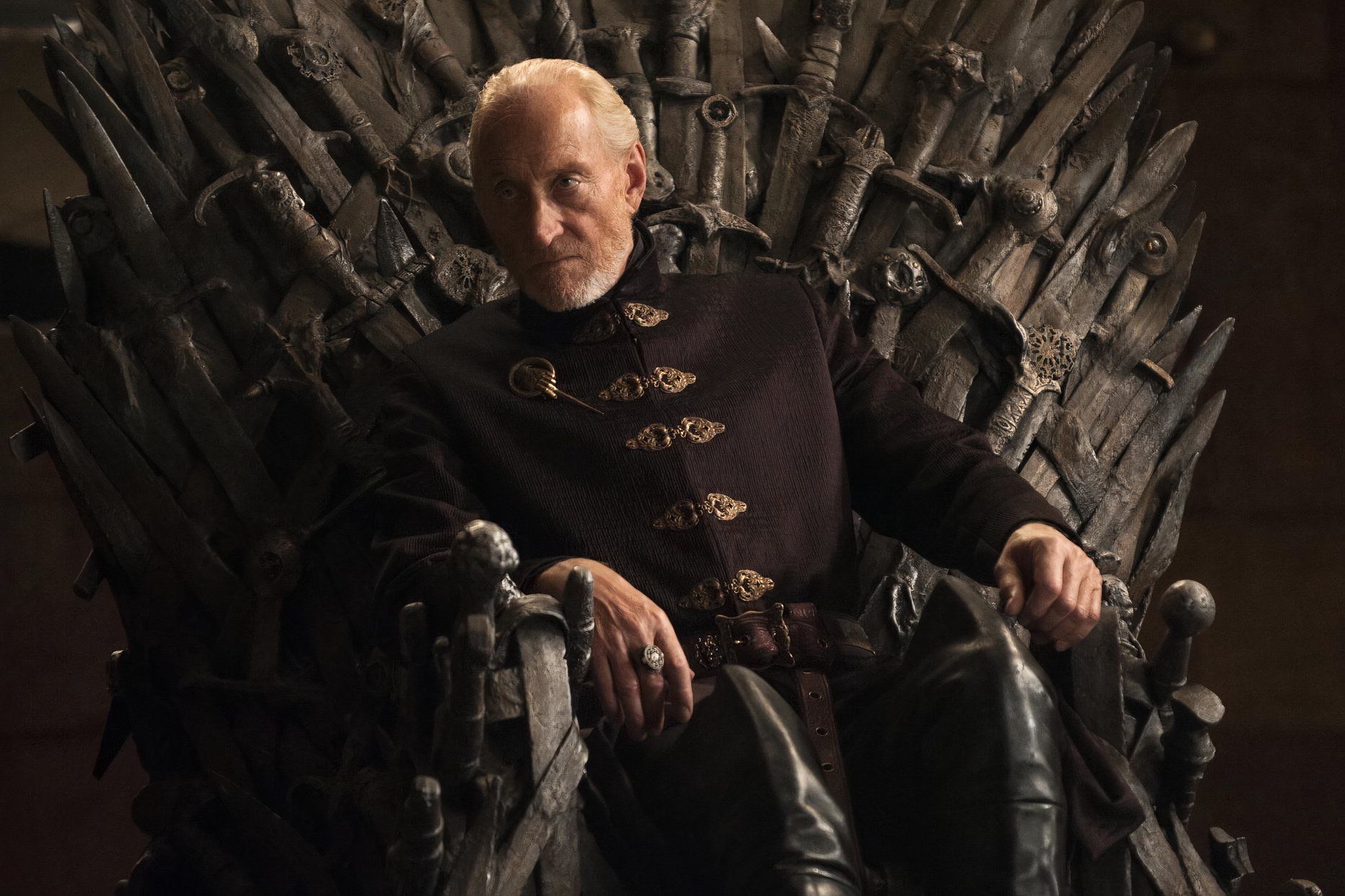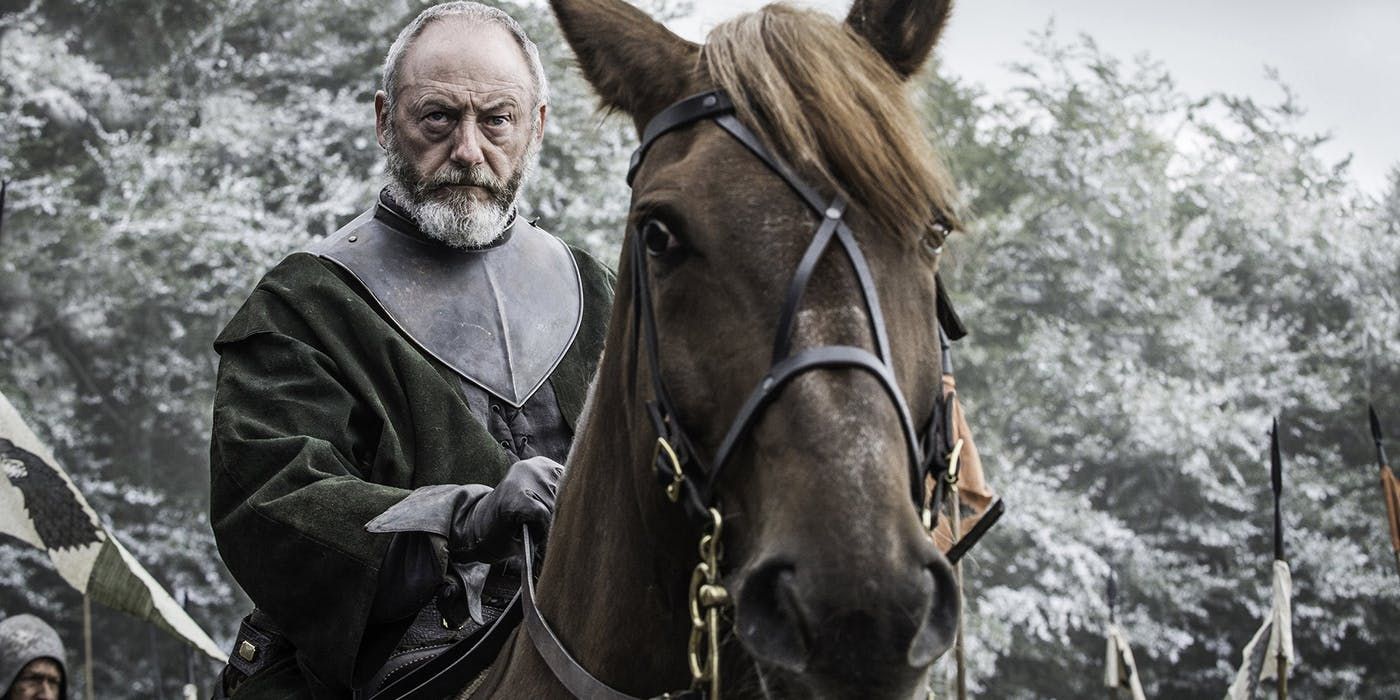
In Game of Thrones, many high-born nobles probably wondered how it would feel to rule the Seven Kingdoms, but traditionally, the Iron Throne is inherited rather than claimed. However, challengers occasionally emerge to overthrow the present monarch, such as Robert Baratheon, who defeated the last Targaryen king. While Robert had some Targaryen blood through his grandmother Rhaelle Targaryen, his rebellion opened the door for others plotting to usurp the throne simply because they saw it was possible.
Westeros always had individuals who rose in station against all odds, such as Varys and Littlefinger. But what if they had seized the throne for themselves? Would they have stood a chance? This list ranks those from good to slim chances because of a combination of noble blood, wealth, and ambition, and those who rose solely through cunning action

Maester Aemon actually had a legitimate claim to his father’s throne. When King Maekar died, Aemon was already serving as a Maester at Dragonstone for his brother Daeron, until Daeron died of pox. With the throne vacant, some Lords of Westeros preferred installing Aemon instead of the next in line, his younger brother Aegon (known as Egg, who takes center stage in A Knight of the Seven Kingdoms). Many nobles disliked Egg’s sympathy toward the smallfolk.
However, Aemon refused to abandon his Maester duties. When Egg became king, Aemon convinced his brother to send him to the Night’s Watch to ensure his claim remained uncontested. While a Maester typically serves for life, the rules are technically less strict than those governing the Night’s Watch brothers. Aemon deliberately joined the Night’s Watch and served as their Maester to avoid any succession disputes. Many might have favored Aemon as king because he was gentle, wise, and thoughtful because of his Maester training. However, Aemon’s love for his younger brother was strong, and he viewed Egg as a good choice to rule the Seven Kingdoms.
As King Viserys’s younger brother, Daemon served as heir until the king named his daughter Rhaenyra as successor. During the Dance of the Dragons, Daemon and Rhaenyra grew apart but reconciled in the Season 2 finale. In House of the Dragon, audiences witnessed Daemon toying with challenging his niece and wife, but he quickly learned that ruling requires more than a powerful name, a dragon, and skilled swordsmanship
Daemon struggled to gain control over the Riverlands, revealing his lack of patience and diplomatic skills necessary for kingship. While he might have gained some support to seize the throne, the presence of the Hightowers and Rhaenyra made success highly unlikely. Some people excel as warriors with a great spirit (Robert Baratheon fits this category), but that doesn’t translate to an effective monarchy. Daemon could only have succeeded with overwhelming power, like Aegon the Conqueror, who commanded three large dragons as an unstoppable force.
Rhaenys Targaryen was Jaehaerys’s eldest granddaughter and one of two contenders for the Iron Throne. However, Viserys (her cousin and the second-oldest grandchild) was chosen over her simply because she was a woman. Rhaenys would have made an excellent ruler with the right temperament. While Viserys was kind and even-tempered, he often hesitated when decisive action was needed and did little to involve Rhaenyra in important decisions despite naming her heir.
Rhaenys was equally even-tempered but also wise and intelligent, with a strong understanding of politics. When Vaemond came to King’s Landing to petition for the Driftwood Throne, Rhaenys initially wanted to remain independent. However, when Viserys unexpectedly appeared to support his grandson’s claim, Rhaenys instantly changed her stance to support Viserys and Rhaenyra because she knew that the support of the King would grant her house greater power. Later, her wisdom guided Corlys to support Rhaenyra, and she was one of the Queen’s effective counselors. Rhaenys also proved fierce by taking on Vhagar and Sunfyre at Rook’s Rest.

The Lannister patriarch served as Hand of the King to Aerys Targaryen and later to Joffrey and Tommen Baratheon until Tyrion killed him. Tywin was a masterful yet extremely ruthless strategist with one goal: creating an impeccable legacy for House Lannister. His commanding presence allowed little resistance, including from his children. Still, Tywin didn’t desire kingship because he understood that being king didn’t make one the most powerful person in the realm.
To Tywin, a king is a puppet serving as the throne’s face, while the Hand calls the shots. Tywin enjoyed leadership, but not the ceremony and glamour of kingship. As Warden of the West and Hand to three kings, he could have had a solid chance at claiming the throne, but not without significant resistance. The Lannisters weren’t universally loved, especially by northern houses, and Tywin wasn’t an heir to the throne.

Larys Strong was Lyonel Strong’s second son and, like Daemon Targaryen, not in line to inherit House Strong’s lands. However, Larys sent assassins to Harrenhal who killed his father and older brother, effectively making him the new Lord of Harrenhal. During the Dance of the Dragons, Larys aligned closely with the Greens, especially Aegon, who proved more pliable than his brother Aemond.
As the youngest son of one of Westeros’s most powerful families, Tyrion might seem like a strong candidate on paper. However, his connection to Daenerys, who destroyed King’s Landing, and his kinslaying severely stained his reputation. His small stature would present additional challenges in a world that discriminates against those who don’t meet traditional norms.
While Tyrion possesses excellent political instincts and the right personality to lead and inspire, these qualities seem less important for kings. Often, the Hand of the King embodies these qualities, which explains why Tyrion was a good choice as Hand to Bran the Broken, despite the otherwise disappointing finale storyline of Game of Thrones.
Gendry Baratheon is Robert’s oldest bastard son, whom the audience meets when Ned Stark visits the blacksmith shop where Gendry works. After their conversation, Ned recognizes Gendry as Robert’s illegitimate child. In the adaptation, Daenerys Targaryen legitimizes Gendry at Winterfell after defeating the Night King, proclaiming him Lord of Storm’s End. But was Daenerys’s act even legal?
Daenerys was never officially crowned Queen of Westeros and died without ever sitting on the Iron Throne, making her decree technically worthless. Even if the Lords of Westeros accepted it, Gendry would still struggle to stake a claim because he wasn’t true-born. Gendry has no ruling experience, having grown up as a blacksmith, making him an unlikely heir despite being Robert Baratheon’s son.
Littlefinger arguably had his eye on the throne since becoming a Small Council member under Robert Baratheon. The man from a small area in the Reach called the Fingers always craved power and came remarkably close to achieving it. In the TV adaptation, Littlefinger admits his ambitions to Sansa Stark, making himself vulnerable to exposure. Even if Baelish had been closer to his more likable and less creepy book version, he would have struggled to achieve this goal simply because he came from a lesser house.

The Onion Knight was elevated to knighthood by the self-proclaimed King Stannis Baratheon. Ser Davos Seaworth came from humble beginnings in Flea Bottom, eventually becoming one of Westeros’s greatest smugglers. Davos met Stannis during Robert’s rebellion when Stannis was trapped at Storm’s End without food. Davos bravely sailed past the blockade and smuggled onions and other supplies into the castle.
Stannis was grateful and later rewarded him with a knighthood and lands, but chopped off the first joints of Davos’s left hand as punishment for his criminal past. In the adaptation, Davos remained fiercely loyal to Stannis until his death (Stannis is still alive in the books), and Stannis even intended to name Davos his Hand of the King. Despite Davos’s excellent diplomatic skills and good nature, the Onion Knight wouldn’t have a real chance at the throne, even though he would undoubtedly make an excellent king or Hand, perhaps better than most who actually sat the throne.